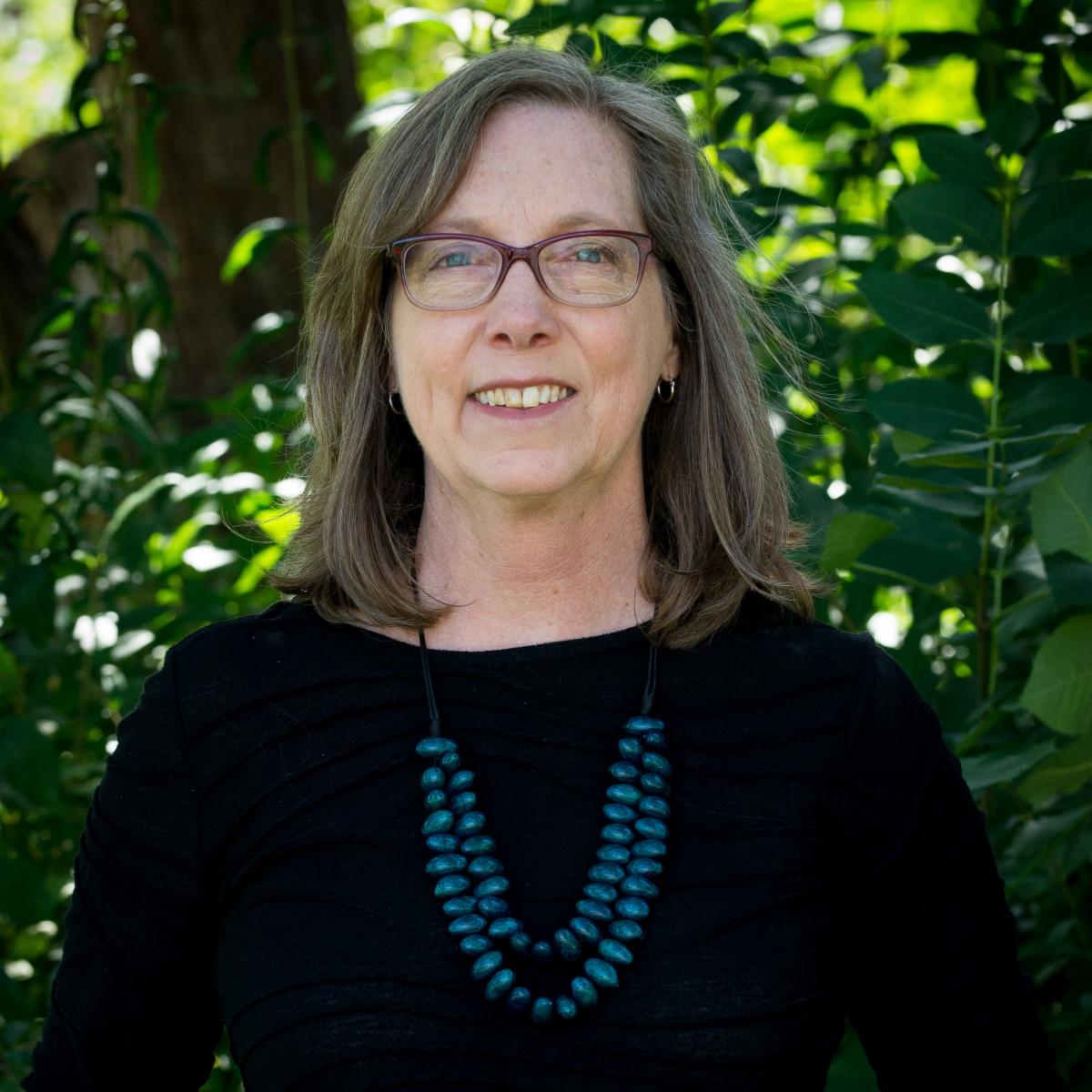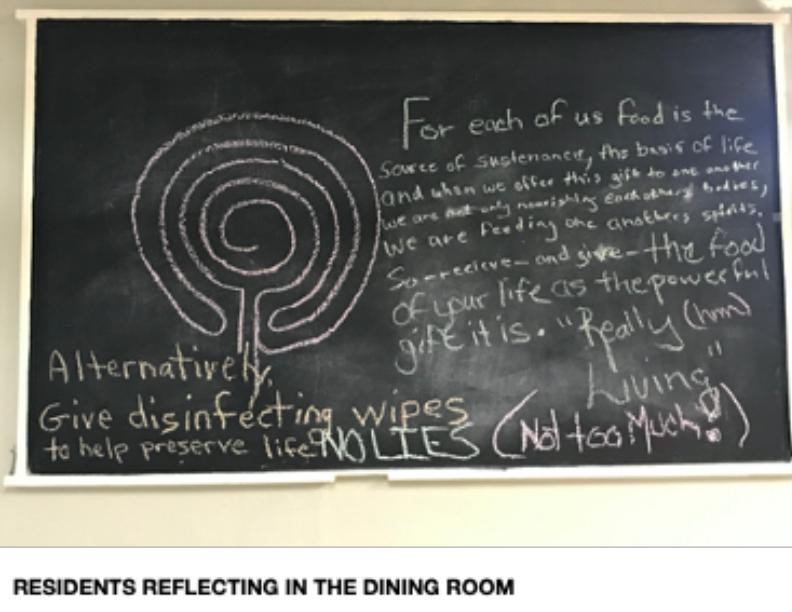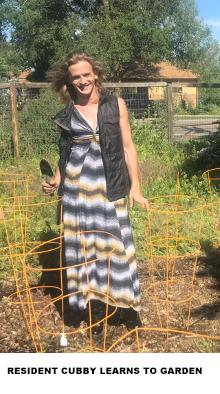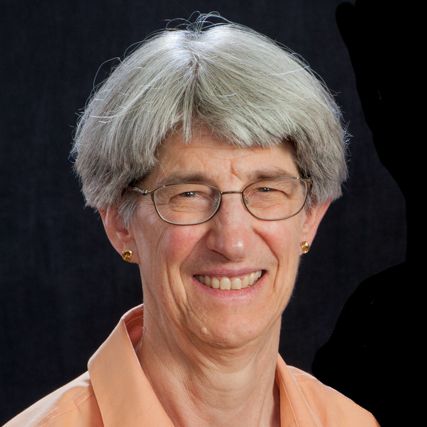 |
 |
 |
 |
 |
|
|
|
|
 This month our song of the month is Spirit of Life. The ministry team is choosing a monthly song to connect all JUC people to the theme, share in our Living, Loving, Learning Together weekly guides, and for members, families, and children to keep a shared song in their hearts- all month long. Spirit of Life is a perfect song to connect us to summertime faith formation! This month our song of the month is Spirit of Life. The ministry team is choosing a monthly song to connect all JUC people to the theme, share in our Living, Loving, Learning Together weekly guides, and for members, families, and children to keep a shared song in their hearts- all month long. Spirit of Life is a perfect song to connect us to summertime faith formation!
Spirit of Life, come unto me.
Sing in my heart all the stirrings of compassion.
Blow in the wind, rise in the sea;
Move in the hand, giving life the shape of justice.
Roots hold me close; wings set me free;
Spirit of Life, come to me, come to me.
Spirit of Love, come unto me.
Deep in my soul, all the mystery of creation.
Teach me to care, peace let there be;
Lead me to truth, showing forth the paths of wisdom.
Roots hold me close, wings set me free,
Spirit of Love, come to me, come to me.
July holds a wonderful month for faith formation. We are in the midst of our weekly Living, Loving, Learning Together guides that support families to engage in meaningful faith formation with their children at home. Our adult guides encourage continued reflection and practices after Sunday morning services. All ages have discussion sessions to share and reflect on Sundays for children and youth and on Sundays and Fridays for adults.
We are also excited to be introducing new adult faith formation small groups this summer. These will be offered as an online, three-session discussion on Unitarian Universalism using the New UU Pocket Guide. This guide provides a unique view of UU ministry, worship, religious education, social justice, community, and history. This book offers readers new and experienced in Unitarian Universalism with resources and inspiration in this critical time. You will hear from the voices of many Unitarian Universalists-people of all ages, coming from many backgrounds and holding many beliefs-as they share their personal and deeply heartfelt testimonies.
These discussions will be offered in three separate small groups this summer, each led by a facilitator that has participated in their own UU Pocket Guide small group. Space is limited, so be sure to sign up soon.
The ministry team will also be offering more Conversations on Race this month. Our last session was so well attended and absolutely necessary that we will continue to provide space for JUC to actively create the change in ourselves to be the people our siblings of color are asking us to be. We will also be bringing in a facilitator to create safe spaces for JUC's members of color to meet with one another. Their spiritual care and support in this faith community are essential at this time.
We continue to create opportunities for us to gather virtually, develop bonds of love and support, and be a faith community in these times of change and transformation.
Spirit of Life, come unto me.
Spirit of Love, come to me, come to me.
Remember... you are loved so very deeply.
|
|
|
 |
 |
Songs for these times from our UU faith
|
|
|
 As I was listening to a current episode of Fresh Air, Terry Gross was interviewing a psychiatrist, Dr. Julie Holland, who had found herself prescribing more anti-anxiety and anti-depression medications since the pandemic began. Even patients who had planned on titrating down their regular prescriptions have been requesting increased dosage, or at least not leaving their medications behind. These are times when the world is giving plenty of messages of uncertainty, and thankfully the medical world has assistance. Although most of the Fresh Air episode centered around pharmaceuticals, there was a brief part of the interview where Dr. Holland addressed non-medical interventions for addressing anxiety and depression. You know these: breathing deeply, especially exhaling longer than an inhale. Second, she mentioned singing, chanting, and music - important, non-medical, and - best of all - no insurance co-pay.
As I was listening to a current episode of Fresh Air, Terry Gross was interviewing a psychiatrist, Dr. Julie Holland, who had found herself prescribing more anti-anxiety and anti-depression medications since the pandemic began. Even patients who had planned on titrating down their regular prescriptions have been requesting increased dosage, or at least not leaving their medications behind. These are times when the world is giving plenty of messages of uncertainty, and thankfully the medical world has assistance. Although most of the Fresh Air episode centered around pharmaceuticals, there was a brief part of the interview where Dr. Holland addressed non-medical interventions for addressing anxiety and depression. You know these: breathing deeply, especially exhaling longer than an inhale. Second, she mentioned singing, chanting, and music - important, non-medical, and - best of all - no insurance co-pay.
This summer at Jefferson Unitarian Church, we have three ways to engage with singing to reconnect with yourself and to our Unitarian Universalist movement and faith. Weekly Evensong services on Wednesday nights are an opportunity to breathe together, to listen to and to sing with chants and songs drawn from Unitarian Universalism and from around the world, and to sit together in brief silences to let the music echo within you. JUC has been offering these services for many years, but began a weekly practice online in mid-March as a centering practice. June's services have largely rebroadcast "Best of" previous services, but July Evensong resumes with live experiences broadcast from my living room.
On July 22, the JUC Choir will be sharing the second of three summer events. On June 10, the Choir hosted "Songs and Stories", with choir members sharing particular songs that gave them courage and hope or that were otherwise powerful in their lives. In July and August, to augment this summer's focus on UU Principles and Sources, the choir will share songs that correspond to UU Principles (July 22) and Sources (August 19). These will be opportunities to hear songs surrounding the inherent worth and dignity of every person, the interconnectedness of all creatures on the earth, and many key values of our faith.
I love to think about Unitarian Universalism as a container to help people remember and share what is most important. Music is a key part of that identity and helps to make meaning, with songs transmitting key values. The hosted Choir events will be fun and memorable, personal and practical. Music can help us wrestle with these times of pandemic and can give us courage to connect us with the justice movements happening all over the world right now. You are most welcome at any or all events!
Evensong
Every Wednesday
6:50 p.m. prelude
7:00 p.m. service
Songs of UU Principles
Wednesday, July 22
7:30 p.m.
Songs of UU Sources
Wednesday, August 19
7:30 p.m.
|
|
|
|
|
|
Transitions
|
|
|
Lois Abbott died May 13. Click
here to read her obituary.
Maren Chappell died this June of Covid-19.
Caretaker, Eric Pieratt, has left JUC. He was here a long time (since 2008!). We wish him well in the future. That position will not be filled immediately.
|
|
|
 |
|
Your JUC Pledge
|
|
|
Though we are not currently gathering in person, we are hard at work to keep the church healthy and are supporting our members and friends in as many ways as we can. The church is here for you as it has been for more than 60 years.
We need members and friends to continue their financial support AND we understand if you are feeling uncertain. We want the lines of communication regarding your pledge to be open and guilt-free. Please let us know right away if you think you will have trouble with your pledge payment(s). We have done our best to create a budget with what we know, but we need to hear from you if things change. Don't hesitate to call Carol Wilsey at 303-279-5282 x 11 or email (email link) her.
Also, remember that if you are hurting in the midst of this pandemic financially, physically or emotionally, we care deeply and want to hear from you. Please reach out by calling 720-CHURCH9 (720-248-7249) or emailing [email protected]. We do hope you are well and that you are using the church resources to connect online.
We are grateful you are part of JUC. Your continued love and commitment will help us move through this difficult time and provide hope to so many within and beyond our walls.
|
|
|
 |
|
Congregational Vote
|
|
|
Despite the challenges of physical distancing, 264 ballots were submitted for the 2020 Congregational Vote. The required number for a quorum was 118, so your participation went well above and beyond.
Pam Bond, Paula Reed, Tracy Nolan, and Stacie Amaya were all elected to the Board of Trustees; Amanda Trosten-Bloom was elected to the Leadership Nominating Committee; and Jeremy Smith, Ben Jackson, and Richard Burrows were all elected as Endowment and Memorial Gift Trust Directors.
The budget was also approved as presented, understanding that circumstances may change and the budget may have to adapt.
|
|
|
 |
|
Board of Trustees Report
|
|
|
The Board approved Derek Bassett, Jill Armstrong, Dick Schaffer and Ken Andrus as delegates to the General Assembly June 24-28.
The Board is in careful discernment regarding reopening of the campus. JUC leadership will continue to monitor the recommendations and requirements of State and Local governments. In addition, the Safety Team has been consulting with members who have expertise in the areas of medicine and infectious disease.
The health and well-being of the congregation are our priorities and our primary considerations for making a decision related to the campus reopening.
|
|
|
 |
|
Compassion
and Planned Giving
|
|
|
Estate planning is an act of compassion for you and your loved ones. Making your wishes known and documented will help assure you receive the medical care you desire and assist your family in dealing with potentially complex legal and financial matters when they are grieving. You can even plan your memorial service and you may even wish to convey your cherished life experiences and philosophy for living in an ethical "Family Legacy Letter."
An estate gift to JUC will convey your compassion for those in a community you love and be your legacy for generations to come.
|
|
|
 |
|
Thank YOU!
|
|
|
The Mental Wellness Advocates are extremely grateful for your financial support of our JUC Team to raise money for NAMI Colorado. Through the NAMI Virtual Walk, we exceeded our goal and raised $2,580 to support NAMI programs. Many of you also contributed through our Special Plate collection. That additional amount will be sent to NAMI soon, adding significantly to our team total. We did extremely well, despite the challenges of COVID-19.
Through your generosity,
The National Alliance on Mental Illness in Colorado can continue their work to combat the stigma of mental illness and provide education, support and advocacy for persons affected by mental illness.
If you or someone you know could benefit from NAMI's good work, please check out their website. There are virtual support groups and resources to meet your needs.
Thank you for your generosity.
|
|
|
|
 |
|
 |
 |
|
|
|
|

Derek Bassett, Trustee
I am shocked by the murders of Ahmaud Arbery, Breonna Taylor, George Floyd, and Rayshard Brooks. Each one of these murders leaves me asking 'how is this possible?' I feel angry, ashamed, and disappointed in the system that we have created and maintained. I am shocked to watch violence occur committed by both police and civilians. You may know the quote by Dr. Martin Luther King. "A riot is the language of the unheard." However, you may not be aware of the full context.
MLK continues,
"...And what is it America has failed to hear? It has failed to hear that the plight of the negro poor has worsened over the last twelve or fifteen years. It has failed to hear that the promises of freedom and justice have not been met. And it has failed to hear that large segments of white society are more concerned about tranquility and the status quo than about justice and humanity." He said these words on March 14, 1968.
I ask you to hold these protestors in compassion and empathy, recognizing the damages these protests are causing are minor compared to the lives being lost. I struggle to find the right words to express both the frustration and disappointment that we as a society have failed to listen to the plight of the poor who are suffering, and instead we hear the words criticizing the damage to property of people being more concerned about the "tranquility of white society." Human lives will always be more important than property. The promise of freedom and justice will always be the values we, as a progressive congregation, will stand for. I ask where you are willing and able, to take a stand and work with the community to support these individuals.
I fear with the pandemic, the political election, this will be as Dr. King said, "the long hot summer ahead." And unless we as America are prepared to do something massively about issues of Race we threaten the very core of what it means to be an American.
Click here for the entirety of his speech. If you have not yet read it, it is worth a read. Let's be safe! Please keep your distance and stay healthy.
|
|
|
 |
 |
|
|
|
|

I was able to attend "Pro Days" held by the Association of Unitarian Universalist Administrators this year because it was held online instead of in person. One of the workshops was about Dismantling White Supremacy based on a discussion of the movie Get Out. For those of you who may not have seen it, I'll try not to spoil it, but it is a thriller/sci-fi story about the enslavement of people of color.
One of the scenes in the movie is a party at which a young black man is a guest among mostly older white people; it is creepy and uncomfortable. In our small group discussion we talked about ways in which we, within our congregations, might make people of color feel uncomfortable at church. I imagined a scene during coffee hour, not that dissimilar from the movie party. Nobody at JUC has the motivations of the movie characters, but we might not behave all that differently. We might pay extra attention to a new person of color. We might say something that makes them feel weird and like they would just as soon "get out" than have a cup of coffee. We don't mean to do that, but it could easily be the result.
Who knows when we can even have coffee hour in real life again. But in the meantime, I know I am doing some focused self-reflection and study to learn about my white privilege and how I play a part in upholding systemic oppression. I don't want to be a creepy white lady, but I easily could be if I'm not thoughtful. In fact, I can name some times I have been that lady. My hope is to avoid it in the future as much as possible, but to honestly own it and correct direction when it happens -- as well as to apologize if appropriate.
I wonder if you have any memories of when you could have been perceived as the creepy white person. I wonder if you can imagine why a person of color might be uncomfortable.
I am convinced that, as white people, we need to wonder about these things. At JUC we are encouraged to do so and reflect together on what we have found. (If you haven't read
Wendy's article on this topic, please do.) We had our first Reflections on Race a couple weeks ago. More will be scheduled in the weeks ahead. Please join in.
|
|
|
 |
|
|
|
|
Margie Robinson
Many of us at JUC who are concerned about racial justice are wondering how we can be involved during this time of mass race protests while protecting ourselves from the threat of COVID-19. JUC CAN would like you to consider signing the petition to put
Fair Tax Colorado
on the November ballot. Well over 100 JUC members have already signed, and there's an opportunity for you to sign as well.
What does this have to do with racial justice? Here's a brief explanation, with a link at the end of this article if you would like to learn more.
Historically, tax policy has deep racist roots designed to benefit whites and keep people of color down. In the post-Reconstruction era, state legislatures began enacting a policy of requiring a super majority (3/5) for all state tax increases. This ensured that the small number of people of color in the legislature could not make changes in tax policy even though people of color may have been a majority of the population. These super majorities put limits on property (usually held by whites) tax rates making it more difficult for localities to raise funds for decent-quality services including schools, parks, libraries and
infrastructure.
In the 1920s, state legislatures began shifting away from property taxes towards sales taxes to raise more revenue. These taxes are regressive in that poorer people pay more proportional to their income.
This shifted the state tax base away from property owners and onto consumers. Lower income people (often people of color) have been adversely affected by this, as sales taxes take relatively more out of their income, than for higher earners.
In addition, Colorado and other states have adopted legislation that protects the wealthy by limiting taxes on property owners (TABOR and Gallagher).
FAIR TAX COLORADO
is an initiative to raise taxes on the top 5% of earners and lower taxes for everyone else. Why is this "fair?" Currently Colorado has an inequitable flat income tax rate. Income tax is just one portion of state and local taxes. Once you factor in things like property and sales tax, the poorest 20% of Coloradans actually pay double the effective tax rate of the top 1%.
The Fair Tax Colorado initiative hopes to raise $2 billion in revenue to be used 50% for teacher wages and 50% for other critical needs such as affordable housing, health care, and infrastructure.
YOU can help get
Fair Tax Colorado
on the ballot in several ways:
To learn more about the racist roots of tax policy, click here.
This is one step toward a more equitable system in Colorado.
|
|
|
 |
|
|
|
|
Rev. Ruth Rinehart
JUUST Living is an intentional recovery community in Lakewood. It is unique in sober living because it is mixed-gender, and especially welcoming to folks in the LGBTQAI+ community. The community is transitional in nature, and affordable for the Denver area ($600/month), designed to be a safe and supportive community for folks in early recovery from alcohol and/or drugs.
JUUST Living is an extension ministry of JUC, as the founder and Executive Director, Rev. Ruth Rinehart, is a member of our congregation, and a community minister affiliated with us. There is a deeper connection as well. This year, JUUST Living purchased the building at 1629 Simms St. in Lakewood, which for decades was the Gemini Youth Shelter. Many volunteers from JUC spent many hours volunteering at Gemini, including refurbishing the kitchen and creating a permaculture garden, as well as in many other ways. Likewise, many volunteers from JUC have continued to help JUUST Living with gardening, maintenance and repair, donations of needed household items, governance infrastructure. We are so grateful.
Our first resident, Rueben, moved in May 1, 2019, and he is the Sr. Resident, with leadership responsibilities in the house. In 2019, we welcomed and housed 19
people, on their journeys in recovery.
We expect we will directly serve 40 people in 2020. The pandemic is very hard on people in early recovery; the isolation factor is devastating.
JUUST Living is supportive housing that
provides a community for folks who need to attend their recovery and mental health gatherings online now, instead of in person.
Our best online connection is through www.facebook.com/juustliving. (w
e'll get that website updated when we have the right volunteer! :) And, check out this recent Lakewood Sentinel article, with three of our residents.


|
|
|
 |
|
|
|
|
Gretchen May 
The Unitarian Universalist Service Committee is an independent human rights organization that grew out of efforts by the American Unitarian Association to address the refugee crisis in Nazi occupied Europe. The Unitarian minister and his wife, Waitstill and Martha Sharp ,who accepted the challenge, were able, at extraordinary risk, to rescue dissidents, refugees and Jews who were under threat from the Nazis.
After the war, the organization expanded its reach but continued with the mission to reach out to individuals and populations under threat of human rights abuses within the US and around the world. When the Unitarians and Universalists joined together in one denomination, the Service Committee became the UU Service committee.
They continue to be:
Guided by the belief that all people have inherent worth and dignity, and to advance human rights globally by partnering with affected communities who are confronting injustice, mobilizing to challenge oppressive systems, and inspiring and sustaining spiritually grounded activism for justice.
Although the UU Service committee is independent of the Unitarian Universalist Association, UU principles guide their work and they have a close association with many UU congregations. At JUC they are represented by the UU Service Committee Task Force, a part of the Justice Council work here.
Members of the Task Force expressed their appreciation for the work of the UUSC.
What I appreciate about UUSC is that they work with organizations on the ground in countries with struggling populations. Thus, UUSC is not dictating what will be done, but letting the locals determine what they need most
. (Nancy White)
With a small staff the UU Service Committee is able to have a large impact because they work with grassroots partners who have identified the needs of the threatened communities they serve. The UUSC is able to provide the resources that allow those partners to expand the work they are doing.
What I appreciate about what UUSC does is this: they keep their eyes on places in the world that are in crisis and offer help if UUSC is able, while also allowing UU members the opportunity to contribute when the need is greatest
. (Nita Bradford)
The UU Service Committee can respond quickly to changing circumstances and new crises. The COVID-19 pandemic created a public health crisis that impacted communities at risk earlier and more severely than the rest of the population. The UUSC was able to quickly relax the funding guidelines for many of their partners allowing them to address the urgent needs created by the pandemic and associated lockdowns. Partner organizations were able to begin providing legal aid to migrants in Mexico via phone and video; to deliver food, cleaning supplies and other basic necessities to refugee camps along the US-Mexico border; cover basic needs of Louisiana Indian Tribes faced with COVID-19 on top of a decimated fishing industry; and provide Rohingya refugees living in the world's largest refugee camp in Bangladesh with soap, masks and other protective supplies. To find out more, click here.
Their advocacy work with allies and partners against the conditions in immigrant detention centers has become more urgent since the spread of COVID-19 because of the crowded conditions and the inadequate healthcare in those centers. They have been advocating for the release of detainees as well as for the release of prison inmates through the Prison Policy Initiative.
In response to the police response to the protests against police violence, the UUSC is highlighting anti-racism resources and actions from the Movement for Black Lives and sharing information with their partners on the ground. The UU Service Committee focus areas of immigration justice, climate justice, and equitable crisis response are deeply interconnected with racial justice and the Movement for Black Lives. The UUSC reaffirms their commitment to share resources, examine their internal practices, and prioritize anti-racism.
Click here to find current online UUSC actions and petitions.
One of the lessons of COVID-19 is that we are all connected. UUSC reaches out to communities throughout the world where there is social or environmental injustice. By supporting the UUSC I am able to directly affect conditions that impact local communities and impact all of us globally
. (June LeCrone)
We encourage you to support the UU Service committee and their vital work which is sustained by member donations. If you are already a member consider increasing your contribution. If you are not already a member click here
to find donation and membership options. Please remember to identify your congregation when you donate. If you can commit to monthly automatic donations from your bank account or credit card, the UUSC can better plan ahead.
Thank you for your support. There is so much work to be done.
|
|
|
 |
|
|
|
|